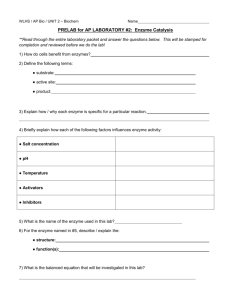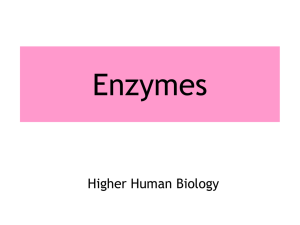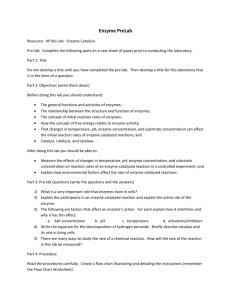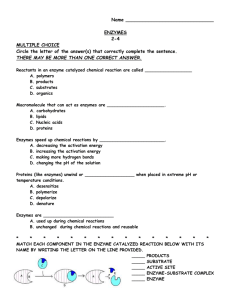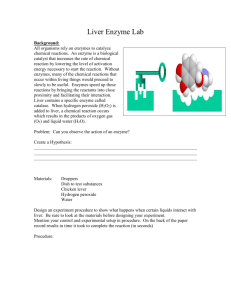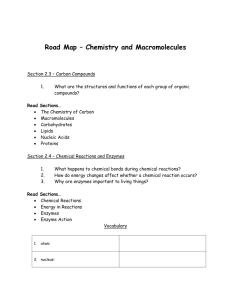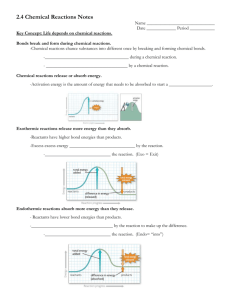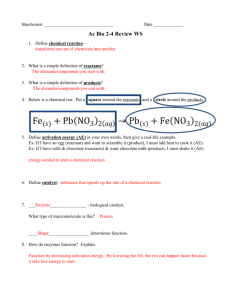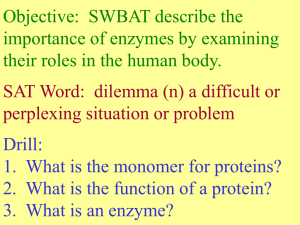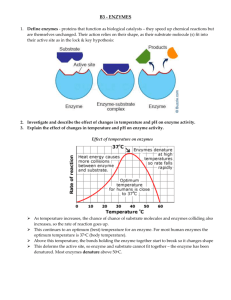Enzymes
advertisement
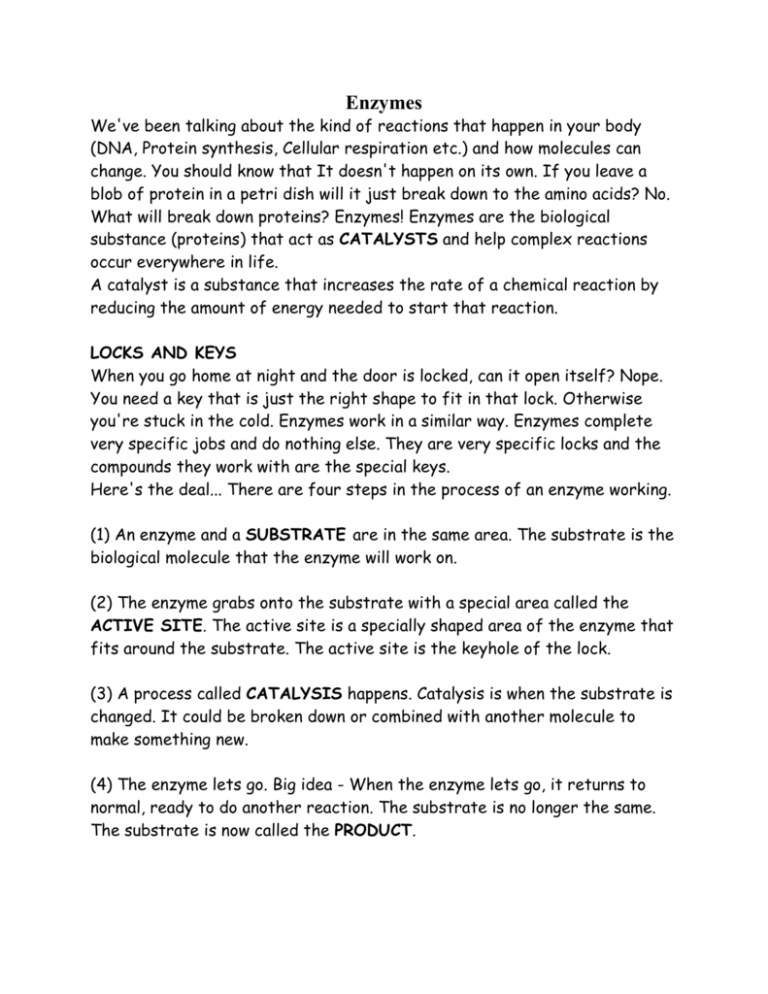
Enzymes We've been talking about the kind of reactions that happen in your body (DNA, Protein synthesis, Cellular respiration etc.) and how molecules can change. You should know that It doesn't happen on its own. If you leave a blob of protein in a petri dish will it just break down to the amino acids? No. What will break down proteins? Enzymes! Enzymes are the biological substance (proteins) that act as CATALYSTS and help complex reactions occur everywhere in life. A catalyst is a substance that increases the rate of a chemical reaction by reducing the amount of energy needed to start that reaction. LOCKS AND KEYS When you go home at night and the door is locked, can it open itself? Nope. You need a key that is just the right shape to fit in that lock. Otherwise you're stuck in the cold. Enzymes work in a similar way. Enzymes complete very specific jobs and do nothing else. They are very specific locks and the compounds they work with are the special keys. Here's the deal... There are four steps in the process of an enzyme working. (1) An enzyme and a SUBSTRATE are in the same area. The substrate is the biological molecule that the enzyme will work on. (2) The enzyme grabs onto the substrate with a special area called the ACTIVE SITE. The active site is a specially shaped area of the enzyme that fits around the substrate. The active site is the keyhole of the lock. (3) A process called CATALYSIS happens. Catalysis is when the substrate is changed. It could be broken down or combined with another molecule to make something new. (4) The enzyme lets go. Big idea - When the enzyme lets go, it returns to normal, ready to do another reaction. The substrate is no longer the same. The substrate is now called the PRODUCT. CAN YOU STOP THEM? Good question! We know what you're thinking. What if enzymes just kept going and converted every molecule in the world? It would never stop... like a monster! Not like a monster, but you're on the right track. Enzymes sometimes need to be controlled. Other times they are controlled because of poisons and contaminants. So what affects enzyme activity? (1) TEMPERATURE: That's a good one. Proteins change shape as temperatures change. Because so much of an enzyme's activity is based on its shape, temperature changes can mess up the process and the enzyme won't work. (2) ACTIVATORS: Sometimes you need an enzyme to work faster and your body creates an activator. Other times you might eat something that acts as an activator. Activators make enzymes work harder and faster. If you're running in a race and you need more energy. Get those enzymes to work! (3) pH LEVELS: In the same way that temperature can change the shape of proteins, the acidity of the environment does the same thing. Remember that the pH is a measure of how acidic or basic something is. (4) INHIBITORS: These are the opposite of activators. Inhibitors either slow down or stop the activity of an enzyme. They often bond to the protein and the shape changes. Remember - When the shape changes, the enzyme will not work the same way. A nasty example of an inhibitor is snake venom or maybe nerve gas from World War I. Enzyme Worksheet After Reading the information on enzymes answer the following questions: 1. What is an enzyme? ____________________________________ _____________________________________________________ _____________________________________________________ 2. What is a catalyst? ____________________________________ _____________________________________________________ _____________________________________________________ 3. What is a substrate? ____________________________________ _____________________________________________________ _____________________________________________________ 4. What is the active site and what is its job?___________________ _____________________________________________________ _______________________________________________________ _____________________________________________________ _____________________________________________________ 5. What is catalysis? ____________________________________ _____________________________________________________ _____________________________________________________ 6. What is the product? ____________________________________ _____________________________________________________ _____________________________________________________ 7. How do enzymes work?___________________________________ _____________________________________________________ _____________________________________________________ 8. What 4 things can affect the way enzymes work? Explain how each thing affects an enzyme. __________________________________ _____________________________________________________ _____________________________________________________
